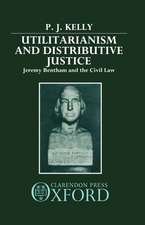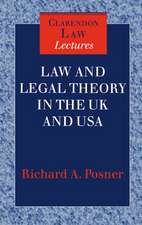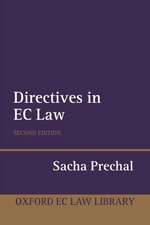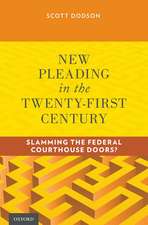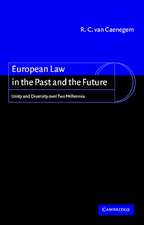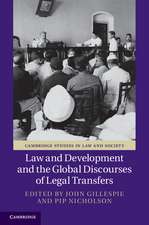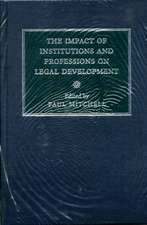Towards a Rational Legislative Evaluation in Criminal Law
Editat de Adán Nieto Martín, Marta Muñoz de Morales Romeroen Limba Engleză Hardback – 2 sep 2016
This book launches a debate on the need to evaluate criminal policies and, what is more complex and ambitious, to develop an evaluation method. The contributions address topics such as the general methodology for evaluating public policy, preparing criminal statistics, and analyzing costs, cost-effectiveness and cost benefits. Additionally, the work explores the state of affairs in various countries including Spain, Sweden, USA, Germany and in the EU. It also examines issues such as the relationship between legislative evaluation and criminal principles and the constitutional courts’ control over criminal acts.
| Toate formatele și edițiile | Preț | Express |
|---|---|---|
| Paperback (1) | 645.28 lei 6-8 săpt. | |
| Springer International Publishing – 22 apr 2018 | 645.28 lei 6-8 săpt. | |
| Hardback (1) | 651.67 lei 6-8 săpt. | |
| Springer International Publishing – 2 sep 2016 | 651.67 lei 6-8 săpt. |
Preț: 651.67 lei
Preț vechi: 766.67 lei
-15% Nou
Puncte Express: 978
Preț estimativ în valută:
124.69€ • 130.19$ • 103.20£
124.69€ • 130.19$ • 103.20£
Carte tipărită la comandă
Livrare economică 04-18 aprilie
Preluare comenzi: 021 569.72.76
Specificații
ISBN-13: 9783319328942
ISBN-10: 3319328948
Pagini: 303
Ilustrații: X, 384 p. 12 illus. in color.
Dimensiuni: 155 x 235 x 22 mm
Greutate: 0.73 kg
Ediția:1st ed. 2016
Editura: Springer International Publishing
Colecția Springer
Locul publicării:Cham, Switzerland
ISBN-10: 3319328948
Pagini: 303
Ilustrații: X, 384 p. 12 illus. in color.
Dimensiuni: 155 x 235 x 22 mm
Greutate: 0.73 kg
Ediția:1st ed. 2016
Editura: Springer International Publishing
Colecția Springer
Locul publicării:Cham, Switzerland
Cuprins
Part I Fundamentals of Policy Evaluation: Alberto Muñoz Arenas, Theoretical and Procedural Aspects of the Evaluation of Public Policies.- Ana Pérez Cepeda, Crime Statistics in the European Union.- Íñigo Ortiz de Urbina Gimeno, Economics as a tool in legislative evaluation: cost-analysis, cost-efficacy and cost-benefit.- Part II Comparative Experiences: Samuel Rodríguez Ferrández, Legislative Evaluation in Spain: Its Necessary Application in the Approval of Criminal Law Reforms.- José Becerra Muñoz, Institutional redesign proposal for the preparation of Criminal Policy by the Government. The focus on ex ante evaluations.- Manuel Maroto Calatayud, Criminal policy Evaluation and rationality in legislative procedure: the example of Sweden.- Marta Muñoz de Morales Romero, Codification and Legislative Technique in the United States of America.- Andreas Hoyer, Criminal Law legislation in Germany.- Fernando Guanarteme Sánchez-Lázaro, Evaluation and European Criminal Law: The Evaluation Model of the Commission.- Part III Evaluation and axiological validity: Pablo Rando Casermeiro, Prejudice and intellectual property. Music theft as an example of empirical measurement of damage.- Ana Prieto del Pino, The proportionality principle and its content of rationality in a broad sense: The principle of subsidiarity.- Part IV Evaluation and judicial control: Juan Antonio Lascuraín, Constitutional control of Criminal law.- Luís A. Vélez Rodríguez, Controlling the constitutionality of Criminal law against the onslaught of irrational criminal polity.- Part V Conclusions: Adán Nieto Martín,< A necessary triangle: the science of legislation, the constitutional control of criminal laws and experimental legislation.
Notă biografică
Adán Nieto Martín and Marta Muñoz de Morales Romero are Professors at the Institute of European and International Criminal Law at University of Castilla-La Mancha, Spain.
Textul de pe ultima copertă
This book launches a debate on the need to evaluate criminal policies and, what is more complex and ambitious, to develop an evaluation method. The contributions address topics such as the general methodology for evaluating public policy, preparing criminal statistics, and analyzing costs, cost-effectiveness and cost benefits. Additionally, the work explores the state of affairs in various countries including Spain, Sweden, USA, Germany and in the EU. It also examines issues such as the relationship between legislative evaluation and criminal principles and the constitutional courts’ control over criminal acts.
Caracteristici
Offers a holistic approach on key evaluation issues Includes theoretical-practical analysis on how evaluation should be done Focuses on studies of a procedural or formal type in relation to the adoption of criminal laws at national and European level Deals with questions of legislative technique and with adjustment of criminal laws to the basic principles of the discipline Analyses constitutional control over criminal laws Pays attention to statistics in carrying out quality evaluations Includes special chapters on new topics as the use of costs, cost-effectiveness and cost benefit in the evaluation of criminal policies and the contribution of economic studies in the configuration of criminal principles

